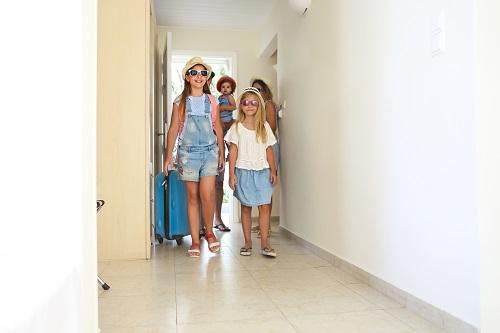

Conducted by the Sports Innovation Institute at Indiana University-Purdue University Indianapolis (IUPUI) and Grand Park Sports Campus in Westfield, Ind., the survey is intended to provide youth sports facilities and event operators with actionable data regarding when, how much and for whom specific COVID-19 adaptations and procedures can be scaled back. Respondents were predominantly from seven Midwestern states: Illinois, Indiana, Kentucky, Michigan, Missouri, Ohio and Wisconsin.
“We are 100 percent just reporting where parents are on their perception,” David Pierce, director of IUPUI’s Sports Innovation Institute, told Fox59 News in Indianapolis. “We really want to help venue operators and tournament organizers be prepared.”
Here are other key findings of the study:
• Forty percent of respondents supported the removal of at least eight of the nine COVID-related adaptations cited in the survey. Removal of face coverings for participants had the most support (75 percent), followed by removal of bench and dugout modifications (73 percent). Other adaptations they would like to see eliminated are limiting spectators (71 percent), altering amenities (71 percent), changing arrival and departure times (60 percent), limiting personal contact between athletes (58 percent), use of face coverings for spectators (57 percent), and social distancing for spectators (55 percent). The lone exception? Only 36 percent of respondents agreed that facilities should scale back on sanitization to pre-COVID levels.
• Indoor youth sports tournaments should have tighter attendance restrictions than outdoor tournaments, according to respondents. Almost half of them believe there should be no attendance restrictions during indoor tournaments, while 76 percent of respondents believe there should be no attendance restrictions during outdoor tournaments.
• Current economic conditions have had little impact on respondents’ sports travel budgets. Only 31 percent of all respondents reported allocating less money toward youth sports travel, while 61.5 percent stated that COVID-19 had no impact on their budgeting.
• Respondents reported wanting stricter procedures for youth sports participants (coaches, players and officials) than for spectators. Overall, 51 percent of respondents believe there should be entry requirements for participants and 44 percent believe there should be entry requirements for spectators.
• Almost all respondents (94 percent) believe that concessions stands should be open, but there was less universal support for opening merchandising areas and playgrounds, reverting to pre-pandemic levels of access to lobbies and common areas, and operation of drinking fountains.
• Attitudes toward COVID-related adaptations were polarized. Only 37 percent believe it is important for venues to enforce guidelines, while 44 percent say it is not important. The rest (19 percent) were neutral on the subject.
Operators of youth sports venues also need to be ready for four different types of users groups this summer, according to the survey: those who believe normalcy is overdue, those who are ready to eliminate health screening procedures for players and spectators, those who have mixed feelings about returning to pre-pandemic conditions and those who want to keep all COVID-related adaptations in place at venues.
Those difference are understandable, according to medical experts, especially when it comes to activities people are passionate about — such as youth sports.
“I think that there is going to become increasingly this divide between indoor or outdoor [sports],” Dr. Brian Dixon with Regenstrief Institute in Indianapolis told Fox59 News. “When you’re outdoors, risk is much lower. Those are opportunities for sports organizations to perhaps take another look at the regulations. … As long as people are willing to kind of distance themselves from one another, masks may not necessarily be appropriate or required [during outdoor games]. If you’re indoors, though, we’re still going to recommend you wear masks because that’s where we see the virus spread most often.”
However, there remains plenty of reason for optimism. As the IUPUI study notes: “Our eventual ‘return to normal’ will come sooner rather than later.”
“Despite current economic and public health conditions, respondents claimed that keeping their child participating in sports is important to them,” the study’s authors concluded. “Ninety percent of respondents reported it was very important or extremely important to keep their child participating in sports regardless of financial situation.”

